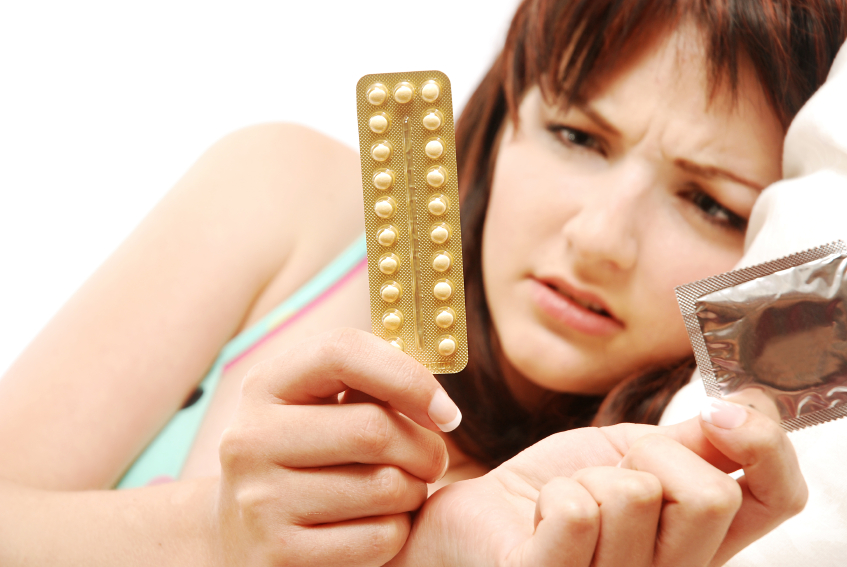
you oughta know.
Hormonal birth control has its merits, but with each spoonful of sugar we swallow to prevent pregnancy and keeping our periods regular, it’s easy to overlook some of the less sweet and more serious potential effects of The Pill. Popping a pill to prevent pregnancy is an important measure for those of us not ready to be parents, but is it a safe long-term solution? For example, using birth control pills is one of the few things known to reduce your risks of endometrial cancer and ovarian cancer. In her book The Hormone Cure, Dr. Sara Gottfried writes, “five years of birth control pill use is associated with a 90% reduction in future ovarian cancer.” However, ladies on the pill also show an increased rate of breast cancer, cervical cancer and liver cancer. A 1996 study found that women who had used the pill had a slightly higher risk of developing breast cancer compared to women who had never taken the pill. Other doctors find the increased risk of breast cancer for women on birth control pills is not that significant, while some say the risk decreases after being off the pill for ten years.
The increased cancer risk makes sense, since the pill is classified as a carcinogen, in the same class as toxins such as tobacco and asbestos according to the World Health Organization. Maybe scary isn’t a severe enough word?
Continued use of the pill can cause blood clots in women, especially those over 35 years-old, and presents a special concern for smokers and overweight women, due to circulation issues those problems present. The risk of blood clots is lower if you don’t fall into these categories, but it’s hard to truly understand the total risk. MindBodyGreen.com explains: “One study looked at healthy Danish women over a 10-year period and found that birth control pill users were twice as likely to experience a blood clot compared to women who did not use birth control pills. While the risk is still statistically small—approximately 6 out of 10,000 women—it’s still a risk, and it’s a life-threatening one.” Estrogen-Progestin birth control pills also show a higher correlation with heart attack and stroke.
Not as scary but still a serious cause for concern in long term family planning– though low dose estrogen birth control has beneficial side effects like knocking out annoying adult acne or eliminating persistent period cramps, it can also do the same to a woman’s sex drive. Oops. “The same hormonal changes that clear up that pesky pimple may also decrease your libido. It tinkers with your ability to know if you’re just not that into him – or if the amount of testosterone your body can use has been lowered.” Dr. Christiane Northrup writes in Women’s Bodies, Women’s Wisdom that “the pill suppresses the midcycle testosterone surge, thus decreasing sex drive in many women.” What’s also concerning is that the diminished testosterone continues even after you have gone off the pill, although it’s unclear whether there’s permanent a change.
Do you prefer to take The Pill for protection or do you opt to use alternative methods? What leads you to make your specific birth control choices? — Casandra Armour
For the full list, check out 14 Things I Wish All Women Knew About the Pill at MindBodyGreen.com.
















